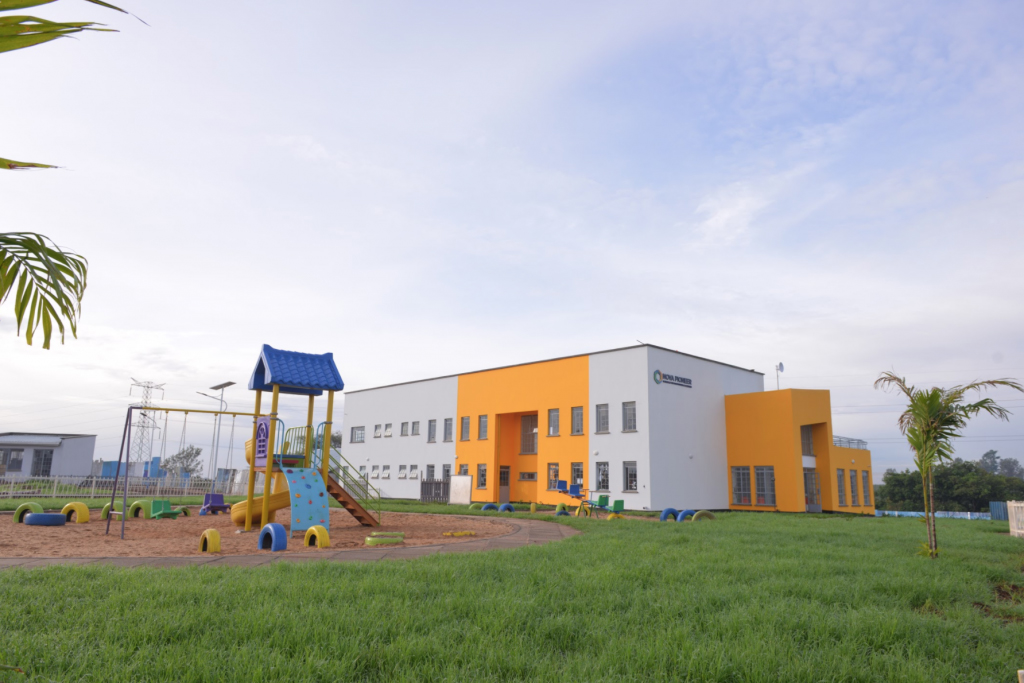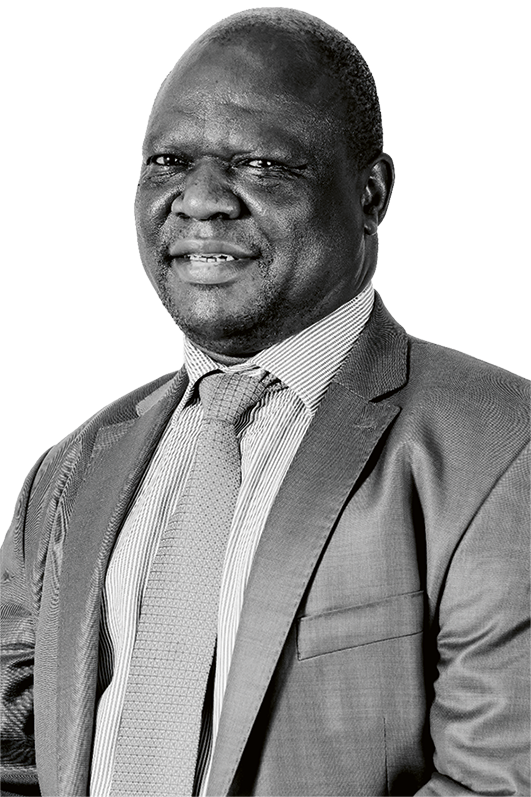
read time: 4 min
As the co-founder of Nova Pioneer, Christopher Khaemba is making his mark as an innovator and leader in education in Africa and changing the future of children in rural and underserved communities.
Schooling
THAT OPENS MINDS AND DOORS


By fiona zerbst

Where did your passion for education start, and why did you pursue a career in education?
My father was a primary school teacher, but I only came to appreciate the impact of education at the Anglican-sponsored secondary school I attended. I had a maths teacher who used to challenge us. He always gave feedback when evaluating our work and gave us individual attention as students.
I was not the brightest, but still was in the top 15 in that subject in my second year because of this. I developed a huge interest in maths and the sciences, and when I moved to Kenya Science Teachers College, I took mathematics and physics as my teaching subjects.
But it was not my first choice. My initial wish was to become an engineer since I was fascinated by the sugar factories where I grew up in Western Kenya. My marks were not good enough, though. Teaching was not my first job either. I first joined the military and became a pilot in the Kenyan Air Force. After an attempted military coup in 1982, jobs were lost as a result. I then applied for a teaching position. I was offered one at Alliance High School, a public school for boys – one of the country's best known and most competitive at the time. That's when my career in education really started.
“Learners choose teachers before they choose subjects. An effective teacher will always attract students.”

How would you like to see education repurposed for today’s world?
Having children attend school and working through the curriculum is not enough. We need to deliver the curriculum in a way that also involves them in designing their futures.
At Nova Pioneer, we concentrate on a few specific factors, including building character, which is fundamentally about values. Our approach consists of six cultural principles: high expectations, always growing, servant leadership, the joy of learning, greater together, and solutions first.
Schools must also ensure that students have the opportunity to get out of the classroom. Sport is key because it can capture children’s interest in clubs and societies.
Our innovation elements are embedded in the curriculum, from preschool to high school, to prepare children to confront challenges that bring innovative solutions. This is really important when it comes to what they should be learning. They should be learning what relates to their future.
Education must be relevant since today’s jobs won’t be tomorrow’s, and artificial intelligence is already having an impact on the continent. These realities must inform the curriculum. One of the biggest challenges on our continent is developing principled, ethical leadership. Unfortunately, theft and corruption have been accepted as the norm in some parts of Africa. This is why it’s vital to expose children to good role models, and why values, accountability, and ethical leadership form part of our curriculum.

Have you taken anything from your teachers at school that you still apply today?
Many people don’t realise that learners choose teachers before they choose subjects. An effective teacher will always attract students. I grew up in a rural area where we didn’t have science laboratories, microscopes, and the like. However, my teachers noticed my practical bent and enjoyed performing experiments and obtaining data. They nurtured my interests and ensured that I truly understood my subjects.
We are very selective about the teachers we appoint at Nova Pioneer. And once they’ve been appointed, we don’t just leave them. We have a professional development programme that ensures that they are up to date – and that we are up to date on their progress.
My co-founder and I also hold monthly online meetings with school leaders and fortnightly meetings with the teams we coordinate in Kenya and South Africa. We do this to ensure that our mission is on track and that we have a dashboard that provides us with data on various performance areas. We also conduct student surveys to determine what they think and whether anything needs improvement.
What are some of the things Nova Pioneer does differently to ensure its success?
One of our greatest assets is giving back to the community, both as a school and through our former pupils.
We also help to strengthen programmes in neighbouring schools – at one of our schools, parents came together to equip a computer lab in a nearby primary school. We’re proud to be able to contribute to developing good educational policies for public schools, as the public school system is faced with many challenges. Our post-school success teams do outstanding work by improving pedagogy and helping learners apply to global colleges.
I say global colleges because we want to open up their horizons. When we discovered that the children in our schools knew very little about other African countries, we introduced African Studies. We don’t necessarily want to make them loyal to Africa, but we want to make them passionate about Africa.
We also do a lot to enable them to interact with children from other countries worldwide, not just those in Africa. This helps them to establish networks because the friends they make as teenagers often remain friends for life.
Clubs and societies also help them to discover other interests, hobbies and pursuits outside the normal education system. If teaching is limited to the classroom, teaching itself often becomes limited.





